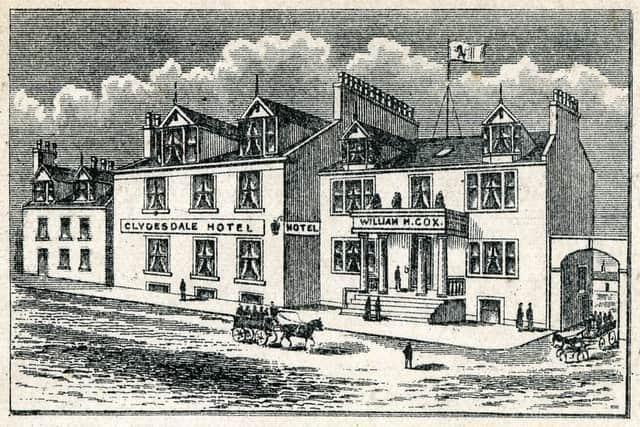How one of Lanark’s Waterloo POW’s STILL hasn’t escaped


No so.
Local historian Ed Archer seems to have spent most of the past few years working on the Gazette’s behalf, delving into the archives to uncover our area’s part in the many and varied historical anniversaries marked recently.
The role of our area’s men and women in the two world wars is well documented but far, far less is known about our involvement in that earlier conflict when France was our enemy and not our ally.
Advertisement
Hide AdAdvertisement
Hide AdEd has gone a long way to filling that gap in our historical knowledge and has come up with some surprising tales, proving that the naming of a Lanark street Waterloo Road wasn’t the only legacy left by that conflict .
Revealed Ed: “In the year 1815 Scotland was playing host to a considerable number of French prisoners of war.
Lanark and Biggar were two places where French prisoners ended up. Some of these prisoners found themselves living it up in a fair degree of luxury!
“These were the captured officers of Napoleon’s army and some of them were lodged in the Clydesdale Inn in Lanark, then still known as the Clydesdale Hotel.”
Advertisement
Hide AdAdvertisement
Hide AdHe tells of how the Lanark and District Archaeological Society - of which he is a leading light - did find one everyday but fascinating relic of that era when the hotel was a very genteel `prison’ - a single, 200-year-old French army boot up in the attic of the Inn, now a branch of Wetherspoons.
Said Ed: “The mind boggles as to how the boot ended up there and one has the vision of a one legged Frenchman looking for his long lost footwear! Whoever the owner of the boot was, he was one of twenty eight officers who were billeted on parole of honour in Lanark.”
Research shows these `French’ officers were of various nationalities.
“Many of these educated men took employment locally as teachers, one teaching French in the Manse to the children of the Reverend William Menzies, the then Minister of St Nicholas Church.
Advertisement
Hide AdAdvertisement
Hide Ad“Another, called Levasseur, taught French to New Lanark pioneer Robert Owen’s sons.
“For some reason, a large number of them joined the local St John’s Freemasons!”
Despite giving their parole of honour not to try to escape, some of our `guests’ did and were helped to do so by sympathetic local couple Janet and James Hislop, who were sentenced in 1813 to seven years transportation.
Ed went on: “But of all stories about the French prisoners in Lanark, the story of Captain Augustus Francis Brard is the most amazing. He fought in Spain and was initially sent as a prisoner to Menorca. He arrived in Cupar and then was sent to Lanark. He remained there until 1814 and then went to France but returned to Lanark to marry the Procurator’s daughter, Miss Jean Currie,
Advertisement
Hide AdAdvertisement
Hide Ad“Ten days after his marriage, news reached him that Napoleon had escaped from Elba and he went back to France where he rejoined his regiment. He then marched with them to Waterloo in command of 120 men. He was slightly wounded and taken prisoner. His language skills proved very useful and he became an interpreter. Eventually he returned to Lanark before working in Glasgow.”
Returning to Lanark in 1850 he taught French, his pupils including future Prime Minister Henry Campbell Bannerman.
He died on Wednesday, 14 August, 1873 aged 84 years and lies to this day in Lanark Cemetery.